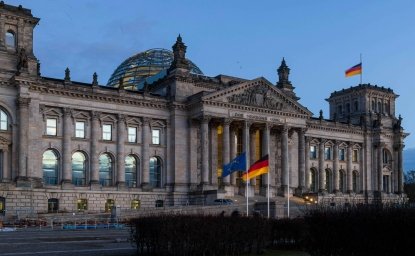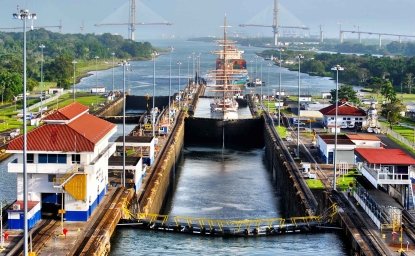This transcript has been lightly edited for clarity.
John Milewski:
Welcome back to another episode of Need to Know. I'm your host, John Milewski. Need to Know is brought to you by the Woodrow Wilson Center. The center is congressionally chartered, scholarship driven, and fiercely nonpartisan. This week, we turn our attention to the conflict-torn country of Myanmar. It's been just over four years since the military coup, and recently the military junta announced its intention to hold elections in January of 2026. My guest is a senior associate for Southeast Asia with the Wilson Center's Indo-Pacific program. Lucas Meyer. So let's find out what we need to know. Lucas, welcome. Thanks for joining us.
Lucas Myers:
Thanks for having me, John.
JM:
So the junta has committed widespread and systematic human rights abuses, which is making most observers really skeptical about whether they can pull off an election. What are your thoughts?
LM:
Exactly that. The election would be fraudulent.
There's zero indication that they have any intention of holding a legitimate contest. Really how you should view this. The election is a fig leaf to gain some modicum of political legitimacy for the military junta. Likely they would say, hey, look, we have this electoral result. it just coincidentally, the party that we wanted to win won, we'll hand off power. The leader is likely to stay on as, you know, say prime minister or something you know, that is how I think they would hold that kind of election. So really to say it's an election is to, you know, disparage elections.
JM:
And we can even quantify that, Lucas, to an extent that the last decimals, when last you and I spoke on an episode of our cousin, our sister program, Wilson Center Now, we talked about only 21 % of Myanmar territory under Hunter control. And they did a survey, a census, which they said was about an electoral, but some people thought it was a counterinsurgency tool. And of the 330 townships, they only got results from 145.
So even if they were attempting to conduct a legitimate election, there are serious questions about whether they have the capacity to do so.
LM:
Exactly. mean that statistic right there says everything. They control about half of the country, arguably less so. There'd be a lot of resistance even then at the local level.
They're deeply unpopular and I don't think anyone really believes that it's legitimate. Certainly none of the major political parties that are not military controlled have signed on to it and they intend to continue resisting the military as they have been the last few years.
JM:
Stop me if I'm putting words in your mouth, but going back to our previous discussion, I also remember that it was China that was pushing for elections. Is that accurate?
LM:
Yes, China as well as a few of the other neighboring countries. So to see it from Beijing's perspective, they are deeply worried about the chaos in the country and
I would say that they have a bit of a blind spot as to the military's actual role as the source of the instability. They see the military as the solution, and if they can have some sort of election where they get the military to have more legitimacy somehow, then all their problems would go away, the resistance movement would fracture, and then they could move towards some sort of peace negotiation with the ethnic armed organizations that are the main actors fighting the in the battlefield. That's how Beijing sees it. Now, again, I think this is really missing the actual facts on the ground and the Chinese are viewing it from their own prism.
JM:
Wishful thinking.
LM:
I would say wishful thinking as well as, you know, it's, I think this is fundamentally an un, this is a kind of conflict that unfortunately, as harmful as it is to the average person in Myanmar, as devastating as it has been to the economy. Right now, there just is not much scope for negotiations. Neither side is in a place where they're ready to do so. An election under the junta's auspices is not going to change that. I think what China is hoping is wishful thinking that it would change that situation. But from my view and what I'm hearing from folks on the ground, it's not that. It wouldn't a change much.
JM:
Also, when last we spoke, the UN was warning that Rakhine State in particular was at risk of acute famine and that that was imminent. What has happened since then?
LM:
So. Over time, the Iraqi army, which is the main ethnic armed organization in the Rakhine state area, they've captured the majority of the territory. The only remaining uncaptured parts are Jiao Pue Port, which is controlled by the Chinese, basically, Chinese companies running it and establishing it, and then Sitwe, which is the capital. But right now, they're actively besieging Sitwe. And essentially, this group is attempting to you know, stabilize the situation, establish governance on the ground. But there have been some allegations of human rights violations by the AA, especially against the Rohingya minority. But also they are blockaded in turn by the military. And that's why there's such a dire food situation.
JM:
When we talk about these reports, how reliable is the information that we can get out of the country? There's always the fog of war, and then there's always the threat to foreign correspondents who attempt to get into war-torn areas and report accurately. How reliable is the information that we're receiving?
LM:
So, you know, obviously any good analyst needs to be very cautious about reports that they see, especially these days on the internet. It's difficult to ascertain credibility but I think generally what we've seen is, especially these human rights violations, both committed by the junta and some actors on the ground on the resistance side, they're very credible because there are multiple corroborating witnesses. A variety of INGOs have corroborated it through open source data, especially actually satellite imagery has played a key role in establishing, say, a village has been bombed or burned. You can see that from orbit. Can't really fake that, right?
JM:
Hmm. Right.
LM:
you painstakingly ensure that what you're reporting on is credible. also, is, know, Myanmar actually has a very committed, you know, noteworthy core of journalists who, you know, struggle through some of the worst, harshest conditions on the planet to report on what's going on. And they've continued to do so even amidst all the violence and threats to their lives.
JM:
You know, I'm going to ask you a question that I know the answer to, but I think for the benefit of our listeners and viewers is about the attention that this is receiving from the global community. You know, the obvious distractions, whether we're talking about Gaza or Ukraine, but given the importance of the situation and then the attention from the international community, what does that gap look like?
LM:
So unfortunately, it's quite stark. And I think there's a few reasons for this. Compared to Ukraine or Gaza, there's not as much great power interest besides China and a little bit the US and India, but that's not quite as headline grabbing as the other conflicts ongoing.
Additionally, think Myanmar gets slotted into this idea that it's this long running conflict. This is more of the same, know, that kind of view. But I think that's very wrong. I actually think this is one incredibly strategically significant, including for the U.S. And that's largely because, you know, as we move towards the Indo-Pacific, as we increase, you know, our attention on the region to compete with China, Myanmar suddenly becomes very important, especially in Southeast Asia as a source of instability and as a place where the Chinese are very interested. So there's a lot of reasons I think that we should pay more attention, but also, you know, it's a huge place. It's 53 million people or so, and it's, you know, a source of regional instability that I think if we could somehow resolve it and address that, that the root causes of this instability, that would really benefit U.S. interests.
JM:
This program was created specifically as a service to Hill staffers and members of Congress, and of course, available to everyone who's interested in these policy discussions. But given the original intent of the program and what you just talked about, are there members of Congress who would agree with you, who get this, who see the strategic importance?
LM:
Absolutely. So the Burma Caucasus has continued to grow in size over the last couple years and they've been playing a leading role in making sure that this receives attention on the Hill. And they've been, you know, there's been some legislation in recent years. I think most notably the Burma Act, which came out as part of the NDAA in 2022. That was a big shift. It allowed the U.S., if the federal government chooses to do so, provide non-lethal aid to resistance actors on the ground. It opened up space for more diplomacy with these actors and it provided for more funding that kind of action clearly shows there's a lot of attention and more broadly this is an issue where I Congress has always played a leading role especially because of the human rights issue and that's always been something that Congress has paid close attention to.
JM:
Now, we just heard in the last couple of days that the head of Myanmar's military junta will be attending a regional summit in Bangkok early next month, which will be his first visit to an ASEAN nation since April of 2021. What is the significance of this? Is this a coup for the military? No dark pun intended.
LM:
So unfortunately, yes. I think what we're seeing, and it's kind of interesting, as the military loses territory, I would have thought a couple years ago that the resistance would gain international attention. Instead, what we've seen is the military is actually rehabilitated itself to actors like China. And he visited China in the fall in a very high-profile diplomatic outreach program. And then now he's going to Bangkok. That signals that actors in the region are willing to engage the junta in a much more direct manner than they were in the beginning of the coup. I think some of the reason for that seeming contradiction is fear that the resistance cannot hold the country together.
That's certainly why Beijing is backing the junta so aggressively, is just to really prop them up. And what I would say is, I think the US has an interest in preventing the rehabilitation of the junta. I don't think the military can be trusted. I don't think there's a deal to cut with the military. Instead, I think the US should really attempt to elevate the resistance actors in international settings, make sure they have a voice and that they're not cut out of this program this process, especially because if the Chinese really bring in their weight to rehabilitate the junta, I think the resistance would have a hard time standing up for itself without US backing in the diplomatic arena.
JM:
Listen, I'm a total layperson when it comes to the question I'm going to ask you. But it would seem to me that inviting them to an event, inviting them to be part of a discussion as if they are legitimate leaders of a country only delays an outcome. It doesn't get us closer. It essentially contributes to what is becoming a chronic condition.
LM:
Exactly. And that's why it's so confusing as an observer. So in that narrative that Myanmar is going to fall apart, it's going to fracture, if the military is not in charge basically, is very deeply felt in the region. And it's difficult to persuade folks otherwise. I think what's funny is as he's going to Bangkok, the military is on the edge of losing a major regional capital sit-way, it's having trouble holding onto territory around some of the major cities like Mandalay, it's suffering consistent, repeated battlefield defeats that to me point to an inevitable conclusion. Now that conclusion may be a long time out in the number of years perhaps, but we're moving in that direction and the trend does not seem to be reversing. So, you know, if that's the case, then I would argue that ASEAN states especially should be working more closely with the pro-democracy resistance instead of the military and yet, you know, he's going to Bangkok.
JM:
What would that look like? A final thought, Lucas, we're out of time for this discussion in just a moment, for whether the actors are the US or the neighbors in the region who want to contribute to a positive outcome, and you say work with the opposition, what would that look like? What actually could be done?
LM:
So there's a few steps, and I think they're relatively low-hanging fruit. This is, it would mostly happen in the realm of diplomacy, right? And so the resistance coalition is diverse and it has at times had unity issues. How you can address that is you talk to as many important people on the ground as possible. You have meetings. You meet with all the key ethnic armed organizations with the national unity government, which is sort of the leading government umbrella for the opposition. You bring them all together in the same room. You facilitate those discussions. You help them do that. And then at the international level, you bring them into the dialogue so that they're not iced out, which is, think, I fear, happening now.
JM:
Lucas Myers is always educational and very useful. think, you in many ways, your work represents some of the best that the Wilson Center has to offer in the sense that we pay attention to things that maybe are flying under the radar, but shouldn't be, should be part of the discussion. Thank you for keeping your fingers on the pulse of what's been happening in Myanmar for a long time now. Appreciate it.
LM:
Thank you, John. I enjoyed talking to you.
JM:
So for those of you who are interested in learning more, you can visit wilsoncenter.org. And if you use the programs tab at the top of the homepage, you'll be able to visit the Indo-Pacific program where you'll find the ongoing good work of Lucas and all of his colleagues. We'll be back with another episode of Need to Know soon. Until then, for all of us at the Center, I'm John Milewski. Thanks for your time and for your interest.











